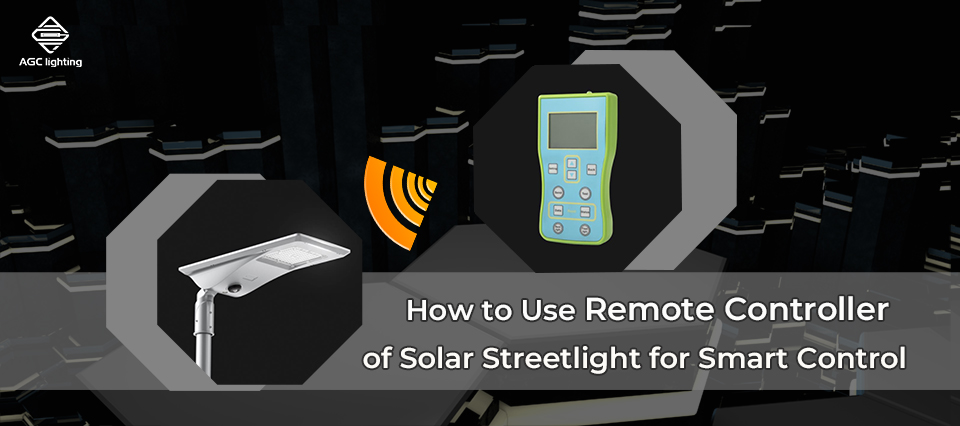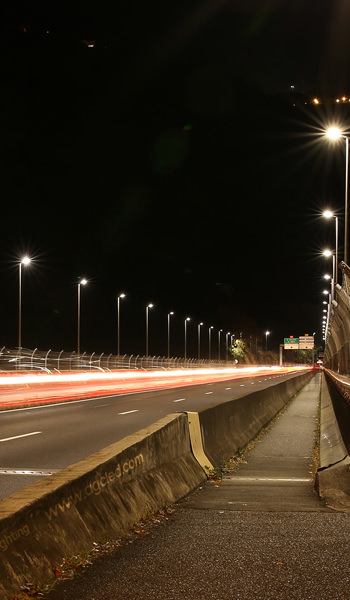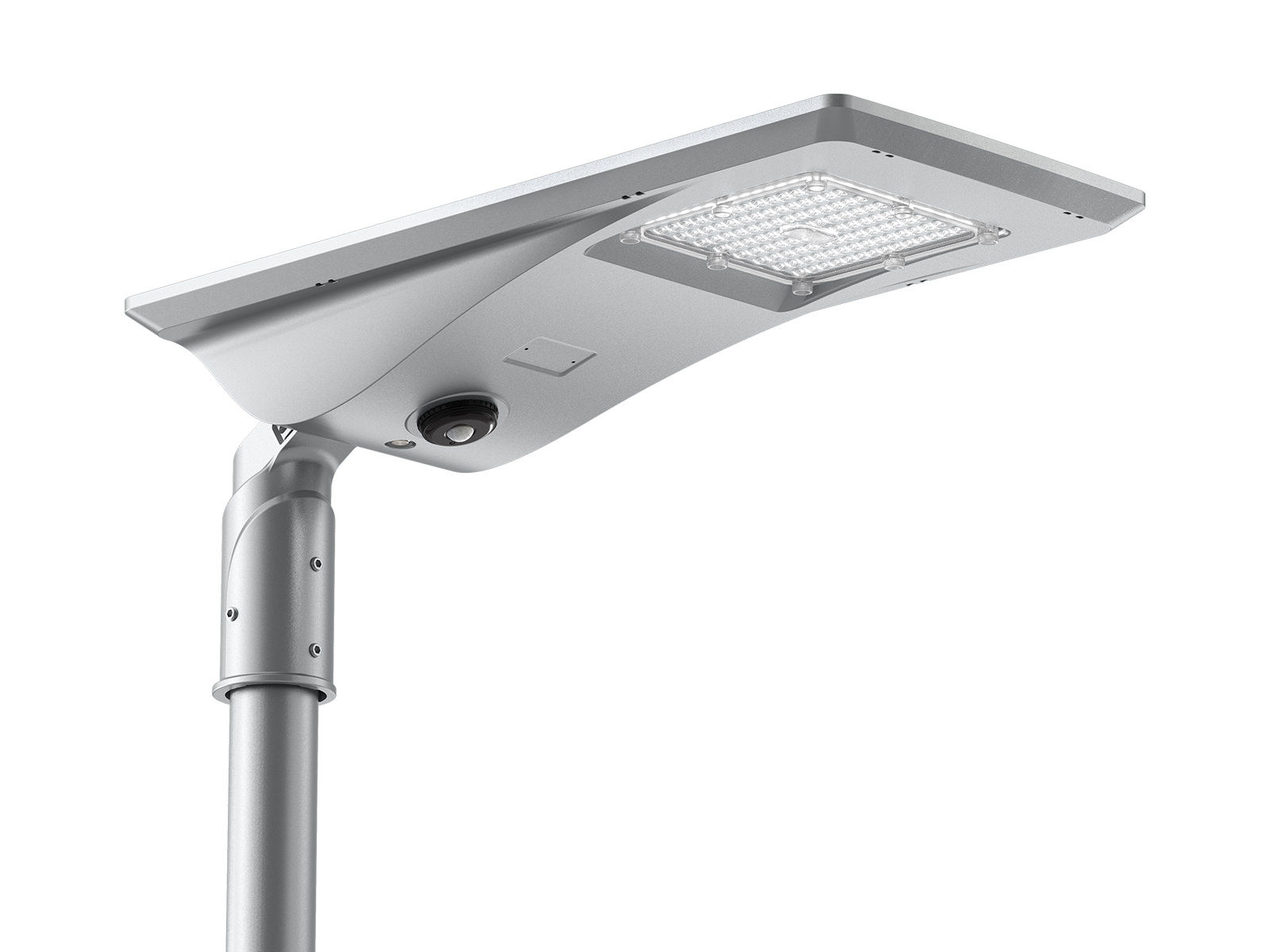
In recent years, resource shortages are becoming more and more serious. However, the electricity demand is also increasing because of urbanization development and population growth. Conventional sources of electricity cannot meet the increasing demands. Thus, renewable sources are selected as alternatives. Research showed that 80% of electricity was applied to urban development and over half of it was consumed by street lights. To cut down electricity consumption, solar energy is utilized to supply power for street lights.
Though solar street lights contribute to saving electricity consumption, maintaining full lighting brightness all night quickly drains the energy stored in the battery. Due to inadequate power, street lights cannot serve illumination throughout the night, which is dangerous for pedestrians and drivers. For further energy saving, a smart control system is adopted for solar streetlights. Motion sensors and remote controllers are used to control street lights. With smart control, street lights are dimmable according to ambient light and activity level. They can also be on or off wireless at setting time.
This post would like to talk about how to use a remote controller of a solar street light for smart control. Smart-Unit (SU05) and ST43 solar street lights are taken as examples in this post.
Instruction of Smart-Unit remote controller
Smart-Unit is an optional smart remote controller for ST43 solar street lights. Dimming and timer are two main functions of the remote controller. It also has an infrared sensing function. Thus, it can work with the street lights which are equipped with a PIR sensor. Let’s take a look at the appearance and the buttons of the Smart-Unit remote controller. Smart-Unit has a simple and clear configuration interface and a large LCD, which allows easier operations. There are ten buttons on the remote controller, including ‘setting’, ‘menu page up’, ‘menu page down’, ‘back’, ‘send’, ‘test’, ‘read’, ‘dormancy’, and ‘flashlight’. The buttons are used for parameter setting.
There is a table of the main parameters setting.
Name |
Range |
Function Description |
|
Time1 |
0 - 6.5H + 24H + D2D*1 |
The first working time |
|
Dim1 |
0 - 100% |
Dimming of the first working time |
|
Time2 |
0 - 7.5H |
The second working time |
|
Dim2 |
0 - 100% |
Dimming of the second working time |
|
Time3 |
0 - 7.5H |
The third working time |
|
Dim3 |
0 - 100% |
Dimming of the third working time |
|
Time4 |
0 - 7.0H + ToT |
The fourth working time |
|
Dim4 |
0 - 100% |
Dimming of the fourth working time |
|
Time5 |
0 - 7.5H |
The fifth working time |
|
Dim5 |
0 - 100% |
Dimming of the fifth working time |
|
DelayOff |
10 - 150s |
Sensing delay off time |
|
Dim NP |
0 - 100% |
Dimming when no people |
How does the remote controller work with solar street light
Take Smart-Unit (SU05) and ST43 solar street lights as examples.
Generally, the ST43 solar street light is composed of lighting units, a battery, a solar panel, and a charge controller.
The solar street light is a lighting system powered by electricity from batteries, which are charged with the use of solar panels. The solar panel consists of crystalline cells. The charge controller ensures the safety of the system, avoiding overcharging or discharging the battery. ST43 solar streetlights work as a result of the photovoltaic effect.
Solar panels are full of solar cells, which collect solar energy and convert it to DC electricity directly. Then the rechargeable batteries store the electricity during the daytime. After that, the batteries power the solar light when it comes to dark or at night. However, the conversion rate depends on sunlight intensity and weather conditions. If it is cloudy, lacking solar energy will decline the charged rate of batteries and cause shorter lighting hours.
There are three functions of the Smart-Unit remote controller, dimming, timer, and motion sensing.
The remote controller is the gateway device between a solar panel and a battery. It can monitor the voltage of solar panels. The Smart-Unit recognizes day and night based on the solar array's open circuit voltage. This day/night threshold can be modified according to local light conditions and the solar array used. The setting range is 3.0V to 8.0V. Thus, the solar street light can light up automatically at dusk and turn off after dawn.
A motion sensing circuit is integrated into the solar street light, which allows setting lighting schedules based on user preference at different times during the night. The Smart-Unit can control the light level as well. With Smart-Unit, you can set the brightness of solar street at different times.
For example, you can set the ST43 solar street light to provide full brightness at the first hour after sunset, and then reduce the brightness to 60% for the next period until dawn. You can also control the solar street light to keep 100% brightness for 4 hours after dark. For the rest of the night, set the light keep full brightness when motion is detected, and reduce it to 30% when there is no presence is detected after 30s hold time.
Three working modes for smart control to solar street light
Various working modes are achievable by adjusting the setting of Smart-Unit. There are three modes for smart streetlight function, D2D mode, Five-stage Night mode, and T0Tmode. But we should note that the motion sensing function only works in the ‘Five-stage mode’ and ‘ToT’ mode. ‘DelayOff’ and ‘Dim NP’ work in the ‘Time3’ and ‘Time4’ periods.
D2D mode
D2D mode means the solar street light keeps on from dusk to dawn without induction function. Motion sensing function is not available in this mode. Set ‘Time1’ to this mode, and the solar street light will work in dusk to dawn mode. In this mode, the light level remains the same from dusk to dawn.

Five-stage Night mode
The five-stage mode means that there are five time periods to light up and the timing throughout the night. There are five stages completed before the light is off. You can set Time 1-5 and Dim 1-5 with Smart-Unit in this mode.

T0T mode
T0T mode is similar to the five-stage night mode. If the fourth stage of the five-stage mode is set to T0T, the working mode is called T0T mode. The key feature of T0T mode is the duration of the fourth mode (T0T mode) is related to the length of the night. The nighttime is changed with reasons rolling on. The nighttime in the winter is longer than summer, the duration of the fourth stage in the winter will be longer, while the duration of the other stages remains.

Smart-units come with a default setting mode. It can work with ST43 solar street light perfectly, providing sufficient lighting to ensure safety as well as saving energy. The default setting mode is as follows:
Time1: 1.0H/100% ; Time2: 2.0H/80% ; Time3: 3.0H/60% ; Time4: T0T/40% ; Time5: 2.0H/100%
DelayOff: 10s; Dim NP: 10%
The controller works as follows:
After the arrival of the evening, the first time the load is lit for 1 hour (full power 100%), the second time the load is lit for 2 hours (power 80%), the third time load light for 3 hours (when people are near the lamp then the load is 60% light, when people are away from the lamp the load is 60% * 10% light), and then the controller according to the actual night time automatically calculate the length of the fourth paragraph (when people are near the lamp then the load is 40% light, when people are away from the lamp the load is 40% * 10% light), the fifth time load light 2 hours (full power 100%).
Here is a video about the manual of the ST43 solar street light with Smart-Unit remote controller:













